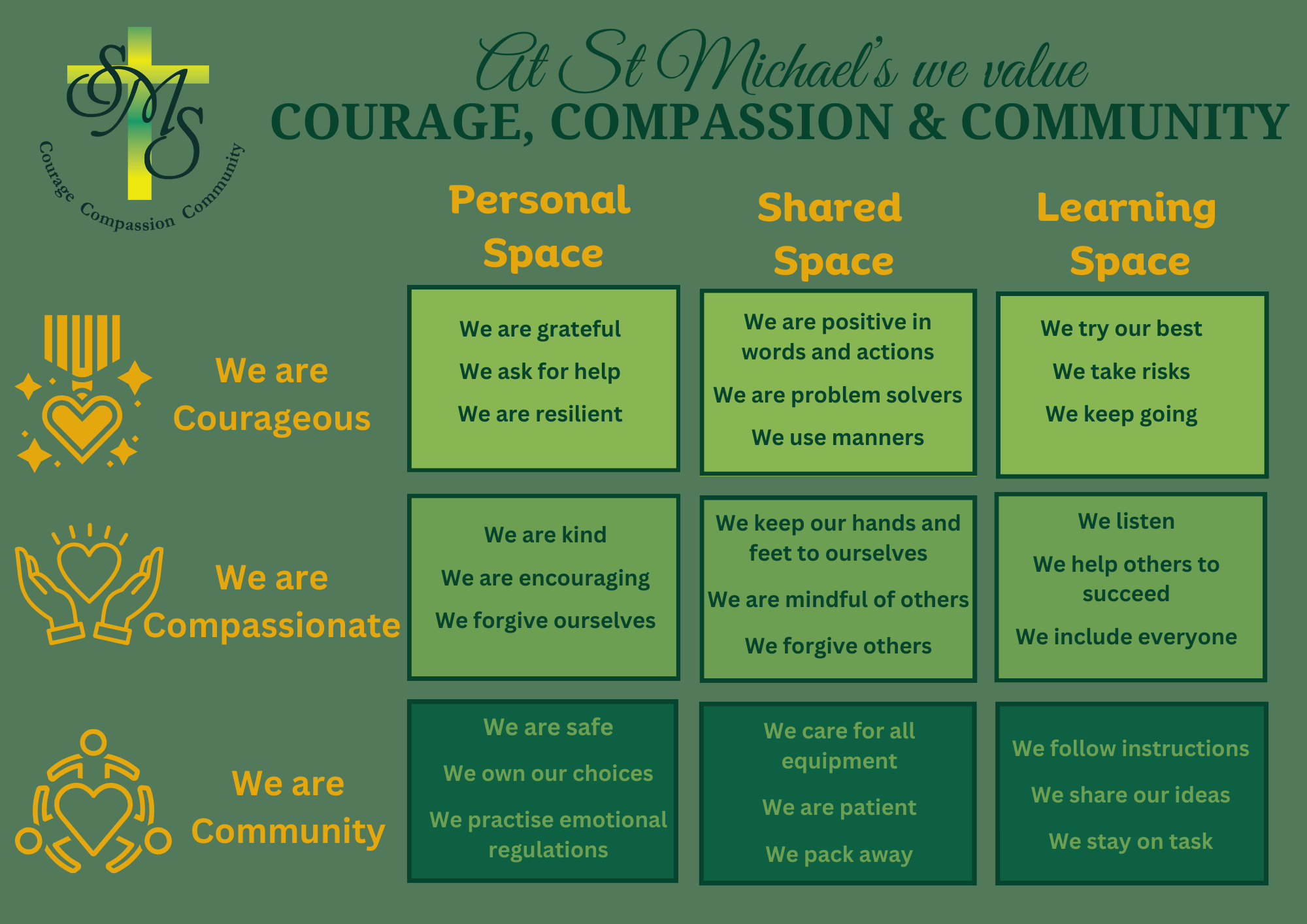At St Michael's Primary School, we believe that education underpins everything we do. Education is also the key when it comes to student behaviour and safety.
SWPBS is a process that establishes systems and practice for teaching social and behavioural skills which in turn enhance learning and teaching. Schools have a responsibility to provide an education to students in safe and predictable environments. Establishing a positive, proactive, preventative school wide set of behavioural expectations is a necessary first step for enabling schools to achieve their goals and responsibilities.
SWPBS is an organisational framework, and is not a specific "program”, “model", "approach", "tool", or "specific curriculum", but a compilation of research- validated and effective practices, interventions, and systems change strategies.
SWPBS provides a framework for:
-
improving the social behavioural climate of schools
-
supporting or enhancing the impact of academic instruction on achievement
-
increasing proactive, positive, preventive management while decreasing reactive management
-
integrating academic and behaviour supports
-
improving services for all students, including students at risk and students with identified disabilities or diverse learning needs.
School Wide Expectations

Student Behaviour Framework - Catholic Education Sandhurst Limited
All Sandhurst Catholic Schools must ensure the policies and procedures that are implemented at school level are consistent with this CES Limited Student Behaviour Framework. As St Michael's is a CES Ltd School, we follow the
CES Limited Suspension, Negotiated Transfer & Explusion of Students Framework
